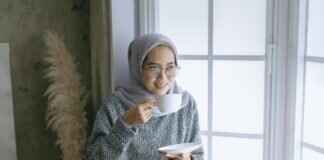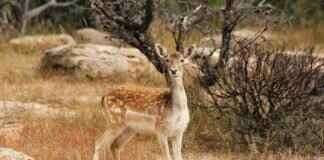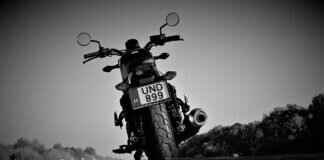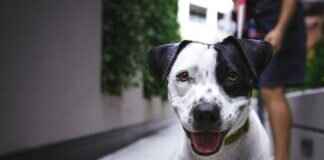Chia seeds, often hailed as a superfood, are tiny, nutrient-packed seeds derived from the Salvia hispanica plant. These seeds have gained immense popularity due to their remarkable health benefits, particularly their high fiber content. In this article, we will delve into the fiber content of chia seeds, their numerous health benefits, and practical ways to incorporate them into your daily diet for optimal nutrition.
Chia seeds are not only high in fiber but also rich in omega-3 fatty acids, antioxidants, and essential minerals. Their unique composition makes them a powerhouse for overall health. Here are some key benefits:
- Rich in Nutrients: Chia seeds contain vital nutrients such as calcium, magnesium, and phosphorus, which are essential for bone health.
- Heart Health: The omega-3 fatty acids in chia seeds contribute to improved heart health by reducing inflammation and lowering bad cholesterol levels.
- Weight Management: Their high fiber content promotes a feeling of fullness, which can help in managing weight effectively.
Chia seeds are exceptionally high in fiber, boasting approximately 10 grams of fiber per 28-gram serving. This significant fiber content makes them an excellent source for those looking to increase their daily fiber intake. The fiber found in chia seeds can be categorized into two types:
Understanding the types of fiber present in chia seeds is crucial for maximizing their health benefits:
- Soluble Fiber: This type of fiber dissolves in water and can help regulate blood sugar levels and lower cholesterol, thus contributing to overall heart health.
- Insoluble Fiber: This fiber does not dissolve in water and adds bulk to the stool, promoting regular bowel movements and supporting digestive health.
Incorporating chia seeds into your diet is both simple and versatile. Here are some practical ways to enjoy these nutritious seeds:
- Chia Seed Pudding: Combine chia seeds with milk or a milk alternative, let them soak overnight, and enjoy a delicious pudding.
- Smoothies: Add chia seeds to your smoothies for an extra fiber boost and a pleasant texture.
- Salads and Baked Goods: Sprinkle chia seeds on salads or mix them into baked goods to enhance nutritional value without altering flavor.
While chia seeds are generally safe for most individuals, consuming them in excess can lead to digestive issues. It is essential to gradually increase your intake and drink plenty of water to avoid potential discomfort.
- Digestive Issues: Some people may experience bloating or gas when consuming large amounts of chia seeds, particularly if they are not accustomed to high-fiber foods.
- Allergic Reactions: Although rare, some individuals may experience allergic reactions to chia seeds. Symptoms can include itching, hives, or gastrointestinal distress.
In summary, chia seeds are a fantastic source of fiber and offer numerous health benefits. By understanding their fiber content and incorporating them into your diet, you can enhance your nutritional intake while enjoying their unique texture and flavor. Remember to consume them in moderation and stay hydrated to fully reap their benefits.

What Are Chia Seeds?
Chia seeds are small, black or white seeds derived from the Salvia hispanica plant, which is native to Central America. These tiny seeds have gained immense popularity in recent years, often hailed as a superfood due to their remarkable nutritional profile. Packed with essential nutrients, chia seeds are not only a great source of fiber but also offer a variety of health benefits that make them a valuable addition to any diet.
Chia seeds are tiny, nutrient-dense seeds from the Salvia hispanica plant, known for their impressive health benefits and high fiber content. They have gained popularity as a superfood in recent years. These seeds are rich in omega-3 fatty acids, antioxidants, and various minerals like calcium, magnesium, and phosphorus. Their ability to absorb liquid and form a gel-like consistency makes them a unique ingredient in various recipes.
Chia seeds are exceptionally high in fiber, containing about 10 grams of fiber per 28-gram serving. This significant amount of fiber makes them an excellent source for those seeking to increase their daily fiber intake. Including chia seeds in your diet can help you meet the recommended daily fiber intake of 25-38 grams for adults.
Understanding the types of fiber in chia seeds is crucial for maximizing their health benefits. Chia seeds contain both soluble and insoluble fiber. Soluble fiber helps regulate digestion and cholesterol levels, while insoluble fiber promotes regular bowel movements. Together, they contribute to a well-rounded digestive health.
- Regulates blood sugar levels
- Lowers cholesterol levels
- Contributes to overall heart health
- Improves metabolic function
- Promotes digestive health
- Adds bulk to stool
- Prevents constipation
- Encourages a healthy gut microbiome
Beyond fiber, chia seeds offer numerous health benefits, including being rich sources of omega-3 fatty acids, antioxidants, and essential minerals. This combination makes chia seeds a powerhouse for overall health, promoting weight management and heart health.
Adding chia seeds to your diet is simple and versatile. Here are some practical ways to enjoy their health benefits:
- Sprinkling on Salads: Enhance your salads with a sprinkle of chia seeds for added crunch and nutrition.
- Blending into Smoothies: Blend chia seeds with fruits, vegetables, and yogurt for a nutritious drink.
- Baking: Use chia seeds in baking recipes to boost fiber content without altering flavor.
Chia seed pudding is a popular and easy way to enjoy the nutritional benefits of chia seeds. Combine chia seeds with milk or a milk alternative, sweeten to taste, and let them soak overnight for a delicious and nutritious treat.
While chia seeds are generally safe for most people, consuming them in excess can lead to digestive issues. It’s essential to gradually increase your intake and drink plenty of water to avoid potential discomfort.
Some individuals may experience bloating or gas when consuming large amounts of chia seeds, especially if they are not accustomed to high-fiber foods. Moderation is key to enjoying their benefits without adverse effects.
Though rare, some people may have allergic reactions to chia seeds. Symptoms can include itching, hives, or gastrointestinal distress. It’s advisable to consult a healthcare provider if any adverse effects occur.
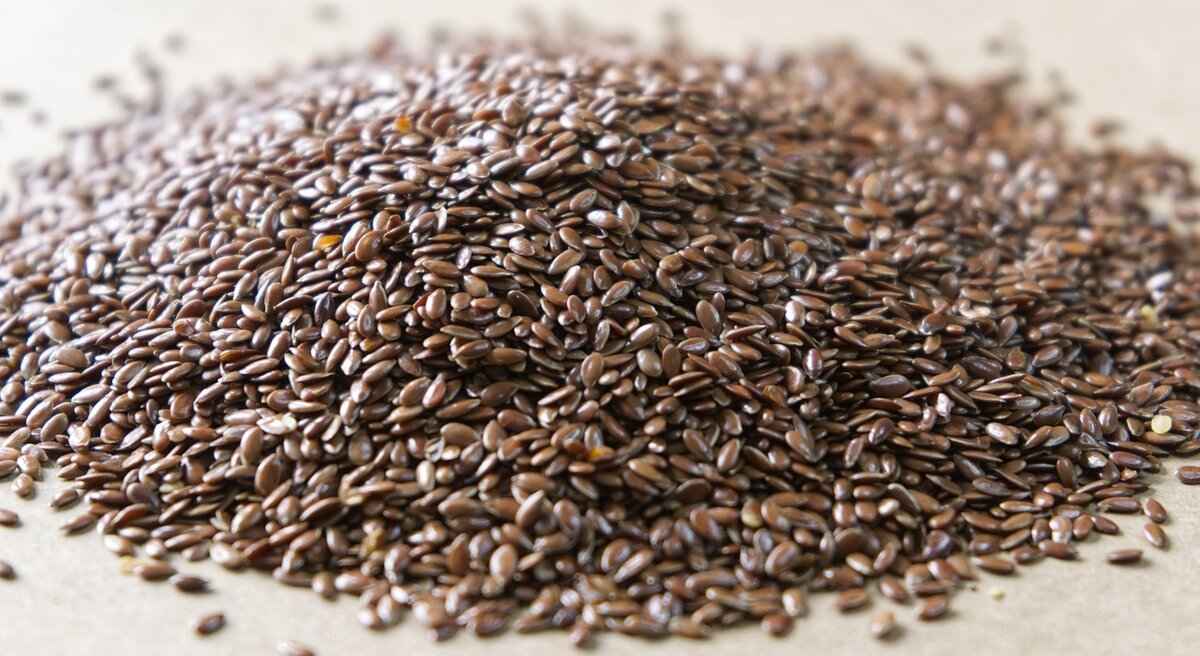
How Much Fiber Is in Chia Seeds?
Chia seeds have emerged as a popular superfood, not just for their versatility in cooking but also for their impressive nutritional profile. One of the standout features of chia seeds is their exceptionally high fiber content. In fact, a mere 28-gram serving of chia seeds contains about 10 grams of fiber, making them a fantastic option for anyone looking to boost their daily fiber intake.
Why Is Fiber Important?
Fiber plays a crucial role in maintaining digestive health and overall well-being. It aids in digestion, helps regulate blood sugar levels, and can even lower cholesterol. The fiber found in chia seeds can be categorized into two types: soluble and insoluble, each providing unique health benefits.
What Are Soluble and Insoluble Fibers?
- Soluble Fiber: This type dissolves in water and forms a gel-like substance in the digestive tract. It helps to slow down digestion, which can be beneficial for regulating blood sugar levels and lowering cholesterol.
- Insoluble Fiber: This type does not dissolve in water and adds bulk to the stool. It promotes regular bowel movements and helps prevent constipation, contributing to a healthy gut.
How Can Chia Seeds Help You Meet Your Daily Fiber Needs?
For adults, the recommended daily intake of fiber ranges from 25 to 38 grams, depending on age and gender. Incorporating chia seeds into your diet can significantly help you achieve this goal. With just a few tablespoons of chia seeds, you can easily add a substantial amount of fiber to your meals.
Practical Ways to Add Chia Seeds to Your Diet
Chia seeds are incredibly versatile and can be included in various dishes:
- Sprinkling on Salads: Add a crunchy texture and nutritional boost to your salads.
- Smoothies: Blend chia seeds into your favorite smoothies for an added fiber kick.
- Baking: Incorporate chia seeds into muffins, bread, or pancakes to enhance their nutritional profile.
- Chia Pudding: Mix chia seeds with your choice of milk or yogurt, let them soak, and enjoy a delicious and nutritious pudding.
Potential Risks of Consuming Chia Seeds
While chia seeds are generally safe for most individuals, it’s important to consume them in moderation. Excessive intake may lead to digestive issues such as bloating or gas, especially for those not accustomed to high-fiber foods. It’s advisable to gradually increase your intake and ensure you drink plenty of water.
Final Thoughts
In summary, chia seeds are a powerful source of fiber, offering numerous health benefits. With their high fiber content, they can play a significant role in enhancing digestive health and overall nutrition. By incorporating chia seeds into your daily diet, you can easily meet your fiber needs while enjoying a variety of delicious meals.
Soluble vs. Insoluble Fiber: What’s the Difference?
Understanding the differences between soluble and insoluble fiber is essential for anyone looking to enhance their diet and overall health. Both types of fiber play unique roles in the body, contributing to various health benefits and digestive processes. This article will delve into the characteristics of each fiber type, their specific benefits, and how they can be effectively incorporated into your daily routine.
Soluble fiber dissolves in water, forming a gel-like substance in the digestive tract. This type of fiber is found in foods such as oats, beans, lentils, apples, and, of course, chia seeds. One of the primary benefits of soluble fiber is its ability to help regulate blood sugar levels by slowing the absorption of sugar into the bloodstream. This can be particularly beneficial for individuals managing diabetes or those looking to maintain stable energy levels throughout the day.
Another significant advantage of soluble fiber is its positive impact on cholesterol levels. It binds to cholesterol and bile acids in the intestines, facilitating their excretion. This process can lead to lower levels of low-density lipoprotein (LDL), commonly known as “bad” cholesterol, thereby reducing the risk of heart disease. Incorporating foods rich in soluble fiber, like chia seeds, into your diet can be a proactive step towards maintaining a healthy heart.
Insoluble fiber, on the other hand, does not dissolve in water. It adds bulk to the stool and aids in moving food through the digestive tract. This type of fiber is found in whole grains, nuts, seeds, and vegetables like carrots and celery. The primary benefit of insoluble fiber is its ability to promote regular bowel movements and prevent constipation by ensuring that the digestive system functions smoothly.
Insoluble fiber also plays a vital role in maintaining a healthy gut microbiome. By promoting regularity, it helps to create an environment where beneficial bacteria can thrive. This balance is crucial for overall digestive health and can reduce the risk of gastrointestinal disorders.
The recommended daily intake of fiber varies by age and gender, but generally, adults should aim for 25 to 38 grams of fiber per day. A balanced diet that includes both soluble and insoluble fiber can help you meet these requirements. Chia seeds, with their impressive fiber content, can significantly contribute to your daily intake.
- Start Your Day with Chia Seeds: Add chia seeds to your morning smoothie or oatmeal for a fiber boost.
- Snack on Fruits and Nuts: Include apples, pears, or a handful of nuts to increase your soluble and insoluble fiber intake.
- Choose Whole Grains: Opt for whole-grain bread and pasta to enhance your diet with insoluble fiber.
- Include Legumes: Beans and lentils are excellent sources of soluble fiber and can be added to salads or soups.
In conclusion, understanding the differences between soluble and insoluble fiber is crucial for making informed dietary choices. By incorporating a variety of fiber-rich foods, including chia seeds, you can enhance your digestive health, regulate blood sugar levels, and promote heart health. A balanced approach to fiber intake will not only improve your overall well-being but also support a healthy lifestyle.
Benefits of Soluble Fiber
Soluble fiber, particularly abundant in chia seeds, plays a vital role in maintaining optimal health. This type of fiber dissolves in water, forming a gel-like substance that has numerous beneficial effects on the body. One of the most significant advantages of soluble fiber is its ability to help regulate blood sugar levels. When consumed, soluble fiber slows down the digestion and absorption of carbohydrates, leading to a more gradual release of glucose into the bloodstream. This can be particularly beneficial for individuals with diabetes or those at risk of developing the condition.
Moreover, soluble fiber can significantly lower cholesterol levels. It binds to bile acids in the intestine, which are made from cholesterol, and helps to eliminate them from the body. As a result, the liver must draw on stored cholesterol to produce more bile acids, effectively reducing the overall cholesterol levels in the bloodstream. This process contributes to better heart health and can lower the risk of heart disease.
In addition to its effects on blood sugar and cholesterol, soluble fiber also supports metabolic function. By promoting a healthy gut environment, it encourages the growth of beneficial bacteria that play a crucial role in digestion and nutrient absorption. A well-functioning metabolism is essential for maintaining a healthy weight and preventing metabolic disorders.
| Health Benefits of Soluble Fiber | Details |
|---|---|
| Regulates Blood Sugar | Slows carbohydrate absorption, stabilizing glucose levels. |
| Lowers Cholesterol | Binds to bile acids, reducing overall cholesterol in the body. |
| Improves Heart Health | Reduces risk factors associated with heart disease. |
| Enhances Metabolic Function | Promotes a healthy gut microbiome for better digestion. |
Incorporating chia seeds into your diet is a simple and effective way to enhance your intake of soluble fiber. They can be easily added to various meals, such as smoothies, yogurt, or even baked goods. Just a small serving of chia seeds can provide a substantial amount of soluble fiber, making them a convenient option for those looking to improve their overall health.
However, it is essential to consume chia seeds in moderation, as excessive intake can lead to digestive discomfort. Gradually increasing your fiber intake, along with adequate hydration, can help mitigate any potential side effects.
In summary, the benefits of soluble fiber found in chia seeds extend beyond mere digestion. By helping to regulate blood sugar levels, lower cholesterol, and improve metabolic function, soluble fiber is a crucial component of a heart-healthy diet. Including chia seeds in your meals can be a delicious and nutritious way to harness these benefits.
Benefits of Insoluble Fiber
are crucial for maintaining overall digestive health. This type of fiber plays a significant role in promoting a healthy gut and preventing various gastrointestinal issues. By adding bulk to the stool, insoluble fiber aids in regular bowel movements and can help prevent constipation. This article delves into the various benefits of insoluble fiber, its sources, and how to effectively incorporate it into your diet.
Insoluble fiber is a type of dietary fiber that does not dissolve in water. It is primarily found in the cell walls of plants and is known for its ability to add bulk to the stool. This property is essential for promoting healthy digestion and regularity.
One of the most important functions of insoluble fiber is its ability to prevent constipation. By absorbing water and adding bulk to the stool, it helps the digestive system to function smoothly. This bulkiness not only facilitates easier passage of stool but also promotes a healthy gut microbiome by providing a suitable environment for beneficial bacteria to thrive.
- Weight Management: Insoluble fiber can enhance feelings of fullness, which may help control appetite and reduce overall calorie intake.
- Blood Sugar Control: While soluble fiber is often highlighted for its role in blood sugar regulation, insoluble fiber also contributes by slowing down digestion, which can help stabilize blood sugar levels.
- Reduced Risk of Digestive Disorders: Regular consumption of insoluble fiber is associated with a lower risk of developing conditions such as diverticulitis and hemorrhoids.
Incorporating insoluble fiber into your diet is easier than you might think. Here are some excellent sources:
- Whole Grains: Foods like whole wheat bread, brown rice, and quinoa are rich in insoluble fiber.
- Vegetables: Leafy greens, carrots, and broccoli are great options for adding fiber to your meals.
- Fruits: Many fruits, particularly those with edible skins like apples and pears, are good sources of insoluble fiber.
- Nuts and Seeds: Almonds and flaxseeds are not only nutritious but also high in fiber.
The recommended daily intake of fiber is about 25-38 grams for adults, with a significant portion of this coming from insoluble sources. To ensure you are meeting your fiber needs, aim to include a variety of fiber-rich foods in your daily diet.
Adding insoluble fiber to your meals can be simple and enjoyable. Here are some practical tips:
- Start Your Day with Whole Grains: Choose whole grain cereals or oatmeal for breakfast.
- Add Vegetables to Every Meal: Include a variety of vegetables in your lunch and dinner.
- Snack Smart: Opt for nuts or raw vegetables with hummus as a healthy snack.
In conclusion, insoluble fiber is a vital component of a healthy diet. By understanding its benefits and incorporating a variety of fiber-rich foods, you can enhance your digestive health and overall well-being.
Daily Fiber Recommendations
The recommended daily intake of fiber is essential for maintaining good health, and it varies based on factors such as age and gender. Understanding these recommendations can help individuals make informed dietary choices, especially when considering fiber-rich foods like chia seeds.
According to nutrition experts, adults should aim for approximately 25 to 38 grams of fiber per day. This range is designed to support digestive health, regulate blood sugar levels, and promote heart health. Women typically require about 25 grams, while men should target closer to 38 grams to meet their nutritional needs.
Fiber plays a crucial role in promoting overall health. It aids in digestion, helps control blood sugar levels, and can even assist in weight management by promoting a feeling of fullness. Furthermore, fiber is known to lower cholesterol levels, which is vital for maintaining heart health.
One of the most convenient ways to meet your daily fiber intake is by incorporating chia seeds into your diet. These tiny seeds pack a powerful punch, providing about 10 grams of fiber per 28-gram serving. This means that just a few tablespoons of chia seeds can significantly contribute to your daily fiber goals.
Chia seeds contain both soluble and insoluble fiber, each offering unique health benefits:
- Soluble Fiber: This type dissolves in water and can help regulate blood sugar levels and lower cholesterol.
- Insoluble Fiber: This type adds bulk to the stool, promoting regular bowel movements and preventing constipation.
Adding chia seeds to your meals is easy and versatile. Here are some simple ways to include them:
- Sprinkle on Salads: A tablespoon of chia seeds can add a nutritious crunch to your salads.
- Blend into Smoothies: Chia seeds can enhance the fiber content of your smoothies without altering their flavor.
- Make Chia Seed Pudding: Combine chia seeds with milk or a milk alternative, let them soak overnight, and enjoy a delicious pudding.
While fiber is beneficial, it’s important to increase your intake gradually. Consuming too much fiber too quickly can lead to digestive issues such as bloating or gas. It’s also crucial to drink plenty of water to help fiber do its job effectively.
If you experience discomfort after consuming chia seeds or other high-fiber foods, consider reducing your intake and gradually increasing it over time. This approach allows your digestive system to adjust. If issues persist, consult a healthcare provider for personalized advice.
In summary, understanding the and how to incorporate fiber-rich foods like chia seeds can significantly enhance your overall health. With their high fiber content and numerous health benefits, chia seeds are a fantastic addition to any balanced diet.
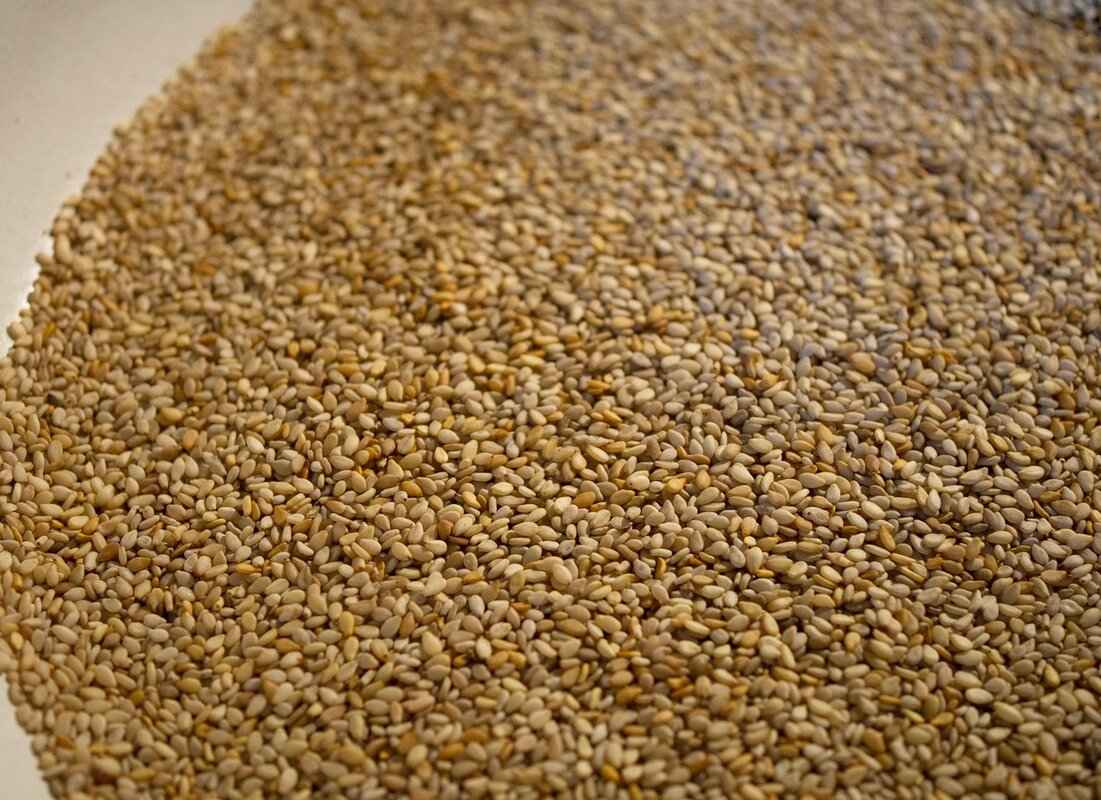
Health Benefits of Chia Seeds
Chia seeds, often hailed as a superfood, are not just a rich source of fiber; they also provide a wealth of health benefits that can enhance your overall well-being. These tiny seeds, derived from the Salvia hispanica plant, are packed with nutrients that contribute to a healthy lifestyle. In this article, we will delve into the various health benefits of chia seeds, focusing on their omega-3 fatty acids, antioxidants, and essential minerals.
Chia seeds are incredibly rich in omega-3 fatty acids, particularly alpha-linolenic acid (ALA), which is essential for heart health. These fatty acids help reduce inflammation and lower cholesterol levels, making chia seeds a valuable addition to any diet. In fact, just one ounce of chia seeds contains about 5 grams of omega-3s, making them one of the best plant-based sources available.
In addition to their omega-3 content, chia seeds are loaded with antioxidants, which play a crucial role in protecting your body from oxidative stress. Oxidative stress can lead to chronic diseases, including cancer and heart disease. The antioxidants found in chia seeds, such as quercetin and chlorogenic acid, help neutralize free radicals and reduce inflammation, promoting overall health.
Chia seeds are also an excellent source of essential minerals like calcium, magnesium, and phosphorus. Calcium is vital for bone health, while magnesium supports muscle function and energy production. Phosphorus plays a key role in maintaining healthy bones and teeth. Incorporating chia seeds into your diet can help you meet your daily mineral requirements.
One of the remarkable benefits of chia seeds is their ability to aid in weight management. The high fiber content in chia seeds promotes a feeling of fullness, reducing the likelihood of overeating. When chia seeds are mixed with liquid, they expand and form a gel-like consistency, which can help curb hunger and control appetite.
Chia seeds are known for their heart health benefits, primarily due to their omega-3 fatty acids and fiber content. Regular consumption of chia seeds can help lower bad cholesterol levels and reduce the risk of heart disease. Studies have shown that incorporating chia seeds into a balanced diet can lead to improved cardiovascular health.
- Smoothies: Add a tablespoon of chia seeds to your morning smoothie for an extra nutritional boost.
- Salads: Sprinkle chia seeds on salads for added crunch and nutrients.
- Baking: Use chia seeds in baking recipes, such as muffins or bread, to enhance fiber content.
- Puddings: Create delicious chia seed puddings by mixing them with milk or a dairy alternative and letting them soak overnight.
While chia seeds are generally safe for most individuals, consuming them in excess can lead to digestive issues, such as bloating or gas. It’s important to gradually increase your intake and ensure you drink plenty of water to aid digestion. Additionally, some people may experience allergic reactions to chia seeds, although this is rare. If you notice any adverse effects, consult a healthcare provider.
In summary, chia seeds are a versatile and nutrient-dense food that can significantly contribute to your health. With their high content of omega-3 fatty acids, antioxidants, and essential minerals, they are a valuable addition to any diet. Whether you are looking to enhance heart health, manage weight, or simply increase your nutrient intake, chia seeds can be an excellent choice.
Weight Management and Satiety
When it comes to weight management, many people seek effective strategies to help them achieve their goals. One often overlooked but highly beneficial option is the incorporation of chia seeds into their diet. These tiny seeds, packed with nutrients and fiber, can play a significant role in promoting a sense of fullness, ultimately aiding in weight control.
Chia seeds are renowned for their high fiber content, containing approximately 10 grams of fiber per 28-gram serving. This impressive fiber content is primarily composed of soluble fiber, which absorbs water and expands in the stomach, creating a gel-like substance. This process not only enhances the feeling of fullness but also slows down digestion, leading to a gradual release of energy and a reduced appetite.
- Increased Fullness: Consuming high-fiber foods like chia seeds can help you feel satisfied for longer periods, reducing the likelihood of overeating.
- Lower Calorie Intake: By promoting a feeling of fullness, chia seeds can help decrease overall calorie consumption throughout the day.
- Stable Blood Sugar Levels: The soluble fiber in chia seeds aids in regulating blood sugar levels, which can prevent energy spikes and crashes that often lead to cravings.
Adding chia seeds to your diet is both simple and versatile. Here are some practical ways to include them:
- Chia Seed Pudding: Combine chia seeds with your choice of milk or a milk alternative, sweeten with honey or maple syrup, and let it sit overnight. The result is a delicious and nutritious pudding.
- Smoothies: Blend chia seeds into your favorite smoothies for an added fiber boost. They can enhance the texture while contributing to your daily fiber intake.
- Baking: Incorporate chia seeds into baked goods such as muffins, breads, or energy bars to increase their nutritional value without altering the flavor.
Besides aiding in weight management, chia seeds offer a plethora of other health benefits:
- Rich in Omega-3 Fatty Acids: These essential fats support heart health and brain function.
- High in Antioxidants: Chia seeds contain antioxidants that help combat oxidative stress and inflammation in the body.
- Essential Minerals: They are a good source of calcium, magnesium, and phosphorus, which are vital for bone health.
While chia seeds are generally safe for most individuals, moderation is key. Some people may experience digestive discomfort if they consume too many chia seeds at once. It’s advisable to start with a small amount and gradually increase your intake to allow your digestive system to adjust.
In summary, chia seeds are a powerful ally in the quest for weight management and overall health. Their high fiber content not only promotes satiety but also contributes to a balanced diet rich in essential nutrients. By incorporating chia seeds into your meals creatively, you can enjoy their benefits while working towards your health goals.
Heart Health and Cholesterol Levels
Maintaining a healthy heart is crucial for overall well-being, and recent studies have highlighted the significant role that chia seeds can play in promoting cardiovascular health. These tiny seeds, derived from the Salvia hispanica plant, are packed with nutrients, particularly omega-3 fatty acids and soluble fiber, which are essential for heart health.
Omega-3 fatty acids are known for their anti-inflammatory properties. They help reduce the risk of heart disease by lowering the levels of bad cholesterol (LDL) in the body. By incorporating chia seeds into your diet, you can enhance your intake of these beneficial fats. Studies suggest that a higher intake of omega-3s is associated with a lower risk of heart attacks and strokes.
Soluble fiber, found abundantly in chia seeds, is another critical component that contributes to heart health. It works by binding to cholesterol in the digestive system, which helps to eliminate it from the body. This process not only lowers overall cholesterol levels but also aids in maintaining healthy blood pressure. Consuming foods rich in soluble fiber, like chia seeds, can significantly improve your lipid profile.
Chronic inflammation is a significant risk factor for various heart diseases. The omega-3 fatty acids in chia seeds help combat inflammation by reducing inflammatory markers in the body. This effect is crucial in lowering the risk of heart-related conditions, making chia seeds a valuable addition to any heart-healthy diet.
To reap the heart health benefits of chia seeds, it is recommended to consume about 1 to 2 tablespoons per day. This amount provides a substantial dose of omega-3 fatty acids and fiber, contributing to improved cholesterol levels and reduced inflammation.
- Chia Seed Smoothies: Blend chia seeds into your morning smoothies for a nutritious boost.
- Chia Pudding: Combine chia seeds with almond milk and let them soak overnight for a delicious breakfast or snack.
- Sprinkle on Salads: Add chia seeds to salads for an extra crunch and nutritional punch.
- Baking: Incorporate chia seeds into your baked goods, such as muffins or bread, to enhance their fiber content.
While chia seeds are generally safe for most individuals, consuming them in excessive amounts can lead to digestive discomfort. It is advisable to gradually increase your intake and ensure adequate hydration, as chia seeds can absorb a significant amount of water.
People with known allergies to chia seeds or those who experience gastrointestinal issues should consult a healthcare provider before adding them to their diet. Additionally, individuals on blood-thinning medications should be cautious, as omega-3 fatty acids can have a blood-thinning effect.
In summary, incorporating chia seeds into your diet can significantly contribute to better heart health by lowering bad cholesterol levels and reducing inflammation. Their rich content of omega-3 fatty acids and soluble fiber makes them a powerful ally in the pursuit of cardiovascular wellness. Start including them in your meals today for a heart-healthy lifestyle!
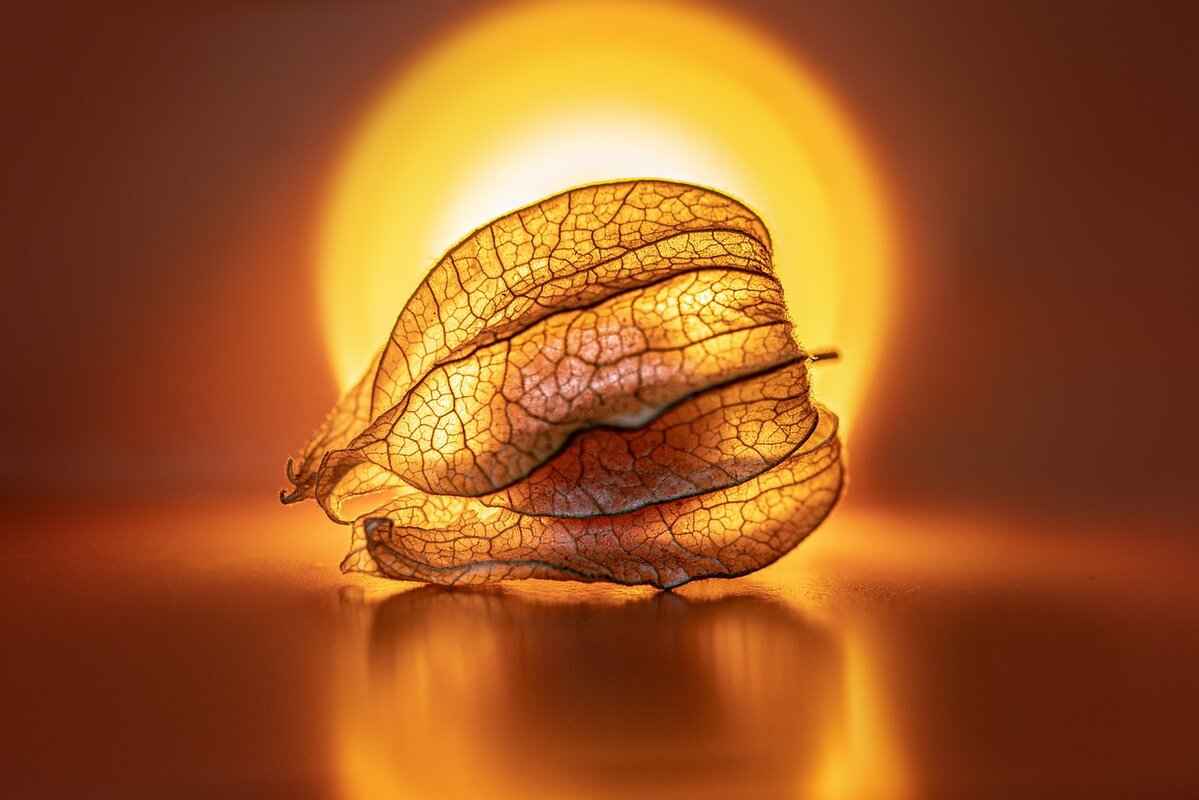
How to Incorporate Chia Seeds into Your Diet?
Incorporating chia seeds into your diet can be an exciting and nutritious endeavor. These tiny seeds are packed with health benefits, and their versatility makes them easy to add to a variety of meals. Below, we explore various ways to seamlessly integrate chia seeds into your daily routine, enhancing both flavor and nutrition.
Chia seeds are not only a fantastic source of fiber but also rich in omega-3 fatty acids, protein, and antioxidants. With approximately 10 grams of fiber per 28-gram serving, they can significantly contribute to your daily fiber intake. This makes them an excellent choice for anyone looking to improve their overall health.
- Sprinkling on Salads: Enhance your salads by sprinkling chia seeds on top. They add a delightful crunch without overpowering the flavors of your dish.
- Blending into Smoothies: For a nutrient boost, blend chia seeds into your smoothies. They not only increase fiber content but also create a creamy texture when soaked.
- Baking: Substitute a portion of flour in your baking recipes with chia seeds. This is an easy way to enrich muffins, breads, and pancakes with extra nutrients.
- Making Chia Seed Pudding: Combine chia seeds with your choice of milk or a milk alternative, add sweeteners or flavors, and let it sit overnight for a delicious and filling breakfast or snack.
Start your day right by incorporating chia seeds into your breakfast. For example, you can add them to oatmeal, yogurt, or overnight oats. They absorb liquid and expand, creating a satisfying texture that will keep you full longer.
Chia seeds can be used in various recipes, making them a fun ingredient to experiment with. Here are a few ideas:
- Chia Seed Jam: Combine chia seeds with mashed fruit and a sweetener of your choice. Let it sit for a few hours to thicken, creating a healthy jam alternative.
- Chia Seed Energy Bites: Mix chia seeds with oats, nut butter, and honey to create no-bake energy bites. These make for a quick and nutritious snack.
When consuming chia seeds, it’s essential to stay hydrated. Chia seeds can absorb up to 10-12 times their weight in water, which can help with hydration but also increases the need for additional fluid intake. Always make sure to drink enough water when incorporating them into your diet.
While chia seeds are generally safe, moderation is key. Some people may experience digestive discomfort if they consume large amounts without adequate hydration. Start with a small quantity and gradually increase your intake to allow your body to adjust.
In summary, adding chia seeds to your diet is a simple yet effective way to boost your nutrition. Their versatility allows for easy incorporation into various meals, making them an ideal choice for those seeking to enhance their dietary fiber and overall health.
Chia Seed Pudding Recipes
Chia seed pudding has become a favored dish among health enthusiasts, and for good reason. This delightful treat is not only simple to prepare but also packed with nutritional benefits. By soaking chia seeds in milk or a milk alternative, you can create a creamy, satisfying pudding that serves as a nutritious breakfast, snack, or dessert.
Chia seeds are a superfood known for their high fiber, protein, and omega-3 fatty acid content. When combined with liquid, these tiny seeds expand and form a gel-like consistency, making them perfect for pudding. The soaking process allows the seeds to absorb the liquid, resulting in a deliciously thick texture that can be enjoyed in various ways.
To make a basic chia seed pudding, follow these simple steps:
- Ingredients:
- 1/4 cup chia seeds
- 1 cup milk or milk alternative (almond, coconut, etc.)
- 1-2 tablespoons sweetener (honey, maple syrup, or agave)
- 1/2 teaspoon vanilla extract (optional)
- Instructions:
- In a mixing bowl, combine the chia seeds, milk, sweetener, and vanilla extract.
- Stir well to ensure the chia seeds are evenly distributed.
- Cover the bowl and refrigerate for at least 4 hours or overnight.
- Once the pudding has thickened, give it a good stir before serving.
One of the best aspects of chia seed pudding is its versatility. Here are a few exciting variations to consider:
- Chocolate Chia Seed Pudding: Add 2 tablespoons of cocoa powder to the basic recipe for a rich chocolate flavor.
- Berry Bliss: Top your pudding with fresh berries or blend them into the mixture for a fruity twist.
- Coconut Delight: Use coconut milk and sprinkle shredded coconut on top for a tropical flavor.
- Spiced Pumpkin: Incorporate pumpkin puree and spices like cinnamon and nutmeg for a seasonal treat.
Chia seed pudding is not just a tasty treat; it offers numerous health benefits:
- High Fiber Content: Each serving can provide up to 10 grams of fiber, aiding digestion and promoting a feeling of fullness.
- Omega-3 Fatty Acids: Chia seeds are an excellent source of plant-based omega-3s, which are essential for heart health.
- Rich in Antioxidants: These seeds contain antioxidants that help combat oxidative stress in the body.
Chia seed pudding can be enjoyed in various ways. Serve it in individual cups for a visually appealing dessert or breakfast option. You can also layer it with yogurt and fruits for a parfait-style dish.
In summary, chia seed pudding is a nutritious and delicious way to incorporate the health benefits of chia seeds into your diet. With endless flavor possibilities and easy preparation, it’s a perfect choice for anyone looking to enhance their meals with a boost of nutrition.
Using Chia Seeds in Smoothies
Chia seeds have emerged as a popular ingredient in the health and wellness community, especially when it comes to smoothies. These tiny seeds are not only packed with nutrients but also offer a variety of benefits that can enhance your smoothie experience.
- Boosts Fiber Content: Chia seeds are an excellent source of dietary fiber, containing about 10 grams per 28-gram serving. Incorporating them into your smoothies can significantly increase your daily fiber intake, aiding in digestion and promoting a feeling of fullness.
- Adds Texture: When blended, chia seeds create a delightful, slightly crunchy texture that can enhance the overall mouthfeel of your smoothie. This unique quality makes your drink more enjoyable and satisfying.
- Rich in Nutrients: Chia seeds are loaded with essential nutrients, including omega-3 fatty acids, protein, and various minerals. By adding them to your smoothies, you can create a nutrient-dense beverage that supports overall health.
How to Incorporate Chia Seeds into Your Smoothies
Incorporating chia seeds into your smoothies is simple and versatile. Here are some tips to get you started:
- Soak Before Blending: For optimal texture, consider soaking chia seeds in water or your choice of milk for about 10-15 minutes before adding them to your smoothie. This allows them to expand and develop a gel-like consistency, which can enhance the creaminess of your drink.
- Pair with Fruits and Vegetables: Chia seeds blend well with a variety of fruits and vegetables. Try mixing them with bananas, berries, spinach, or kale for a delicious and nutritious smoothie. The natural sweetness of the fruits can balance the mild flavor of the seeds.
- Add Yogurt or Milk: Incorporating yogurt or a dairy-free milk alternative not only boosts the creaminess of your smoothie but also adds additional protein and probiotics, making your drink even more beneficial.
Popular Chia Seed Smoothie Recipes
Here are a couple of quick and easy smoothie recipes that highlight the benefits of chia seeds:
1. Berry Chia Smoothie: - 1 cup mixed berries (fresh or frozen) - 1 banana - 1 tablespoon chia seeds (soaked) - 1 cup almond milk - Blend until smooth and enjoy!2. Green Chia Smoothie: - 1 cup spinach or kale - 1/2 avocado - 1 tablespoon chia seeds (soaked) - 1 cup coconut water - Blend until creamy for a refreshing drink!
Final Thoughts
Incorporating chia seeds into your smoothies is a fantastic way to enhance both the nutritional value and texture of your drinks. With their high fiber content, they can help you feel fuller for longer, making them an excellent addition to any weight management plan. Whether you prefer a fruity blend or a green powerhouse, chia seeds can easily fit into your smoothie routine, providing you with a delicious and healthful boost. Remember to experiment with different combinations to discover what you enjoy most, and enjoy the myriad of health benefits that chia seeds have to offer!

Are There Any Risks or Side Effects?
In recent years, chia seeds have gained immense popularity as a superfood due to their high nutritional value and numerous health benefits. However, as with any food, it is vital to understand the potential risks and side effects associated with their consumption. This section delves into the various concerns related to chia seeds, helping you make informed dietary choices.
While chia seeds are generally deemed safe for most individuals, there are certain risks that one should be aware of. This includes the potential for digestive issues, allergic reactions, and the effects of excessive consumption.
One of the primary concerns with chia seeds is their high fiber content. Although fiber is essential for digestive health, consuming chia seeds in excess can lead to digestive discomfort. Some individuals may experience:
- Bloating: This can occur due to the rapid increase in fiber intake, especially if your body is not accustomed to it.
- Gas: Gas can be a common side effect of introducing high-fiber foods into your diet too quickly.
- Constipation: Ironically, some people may experience constipation if they do not drink enough water while consuming chia seeds.
To mitigate these risks, it is essential to gradually increase your intake of chia seeds and ensure you are drinking plenty of water. A good rule of thumb is to start with a small amount, such as one tablespoon, and increase it slowly as your body adjusts.
Though rare, some individuals may experience allergic reactions to chia seeds. Symptoms can range from mild to severe and may include:
- Itching: This can occur on various parts of the body.
- Hives: Raised, itchy welts on the skin.
- Gastrointestinal distress: Symptoms may include nausea, vomiting, or diarrhea.
If you experience any of these symptoms after consuming chia seeds, it is advisable to consult with a healthcare provider. They can help determine if you have an allergy and recommend alternatives.
Chia seeds can also interact with certain medications, particularly those that affect blood sugar levels and blood pressure. Due to their ability to lower blood sugar levels, individuals taking diabetes medications should monitor their blood sugar closely when incorporating chia seeds into their diet.
Moreover, chia seeds can have a blood-thinning effect due to their high omega-3 fatty acid content. If you are on anticoagulant medications, consult your healthcare provider before adding chia seeds to your diet.
As mentioned earlier, moderation is key when it comes to chia seeds. While these seeds are packed with nutrients, consuming them in excessive amounts can lead to unwanted side effects. Symptoms of overconsumption may include:
- Abdominal pain: Excessive fiber can lead to cramping and discomfort.
- Diarrhea: High fiber intake without adequate hydration can result in loose stools.
To avoid these issues, it is recommended to keep your daily intake of chia seeds to around 1-2 tablespoons, depending on your overall diet and fiber needs.
In summary, while chia seeds offer numerous health benefits, it is crucial to consume them mindfully. By understanding the potential risks and side effects, you can enjoy the nutritional advantages of chia seeds without compromising your health.
Potential Digestive Issues
While chia seeds are heralded for their nutritional benefits, it’s important to be aware of potential digestive issues that some individuals may encounter. Chia seeds are incredibly high in fiber, with about 10 grams per ounce, which can be beneficial for gut health. However, for those who are not accustomed to consuming a high-fiber diet, sudden increases in fiber intake can lead to discomfort.
Some people may experience bloating, gas, or even cramping after consuming large quantities of chia seeds. This is particularly true for individuals who have a sensitive digestive system or those who have not gradually introduced fiber-rich foods into their diet. The body needs time to adjust to increased fiber, and a sudden influx can disrupt normal digestive processes.
- Why Does This Happen? The soluble fiber in chia seeds absorbs water and expands in the stomach, which can create a feeling of fullness and may lead to gas production during digestion.
- How Can You Mitigate These Effects? Gradually introducing chia seeds into your diet can help your body adapt. Start with a small amount, such as one teaspoon, and increase it slowly over time.
- Importance of Hydration: Drinking plenty of water is crucial when increasing fiber intake. Chia seeds can absorb up to 12 times their weight in water, so adequate hydration helps prevent any potential digestive discomfort.
In addition to bloating and gas, some individuals may experience constipation if they do not consume enough fluids along with chia seeds. The seeds can absorb a significant amount of liquid, and without sufficient hydration, they may contribute to a feeling of heaviness in the digestive tract.
For those who are particularly sensitive, it may be advisable to consult a healthcare provider or a registered dietitian before incorporating chia seeds into their diet. They can provide personalized guidance and help determine the appropriate amount of chia seeds based on individual health needs and dietary goals.
It’s also worth noting that while chia seeds are generally safe for most people, there are rare cases of allergic reactions. Symptoms may include itching, hives, or gastrointestinal distress. If any adverse effects occur, it is important to seek medical advice promptly.
In summary, while chia seeds offer numerous health benefits, including high fiber content and essential nutrients, moderation is key. By gradually introducing chia seeds into your diet and ensuring proper hydration, you can enjoy their benefits while minimizing the risk of digestive issues.
Allergic Reactions
Chia seeds have gained immense popularity as a nutrient-rich superfood, revered for their high fiber content and various health benefits. However, it is essential to be aware that, although rare, some individuals may experience to these tiny seeds. Understanding the potential symptoms and knowing when to seek medical advice can help ensure a safe and enjoyable experience when incorporating chia seeds into your diet.
Allergic reactions to chia seeds can manifest in various ways. Common symptoms include:
- Itching – This may occur on the skin or in the mouth.
- Hives – Raised, red welts can appear on the skin.
- Gastrointestinal Distress – Symptoms such as nausea, vomiting, or diarrhea may arise.
In more severe cases, individuals could experience anaphylaxis, a life-threatening reaction that requires immediate medical attention. Symptoms of anaphylaxis may include difficulty breathing, swelling of the throat, and a rapid drop in blood pressure.
Allergic reactions occur when the immune system mistakenly identifies a harmless substance, like chia seeds, as a threat. This triggers the release of histamines and other chemicals, leading to the symptoms mentioned above. While the exact cause of chia seed allergies is not fully understood, individuals with a history of allergies to other seeds, such as sesame or flaxseed, may be at a higher risk.
Chia seed allergies are considered rare. Most people can enjoy chia seeds without any adverse effects. However, it is essential for those who have experienced allergic reactions to other foods to approach chia seeds with caution. If you are trying them for the first time, consider starting with a small amount to see how your body reacts.
If you notice any allergic symptoms after consuming chia seeds, it is crucial to take action:
- Stop Consumption: Cease eating chia seeds immediately.
- Consult a Healthcare Provider: Seek professional advice, especially if symptoms persist or worsen.
- Keep Antihistamines Handy: For mild reactions, over-the-counter antihistamines may help alleviate symptoms.
For most people, chia seeds can be a healthy addition to their diet. To minimize the risk of allergic reactions:
- Start Small: Introduce chia seeds gradually to monitor for any adverse reactions.
- Consult a Doctor: If you have a history of food allergies, discuss with a healthcare provider before adding chia seeds to your diet.
In conclusion, while chia seeds offer numerous health benefits, it is essential to be aware of the potential for allergic reactions. By understanding the symptoms and taking appropriate precautions, you can enjoy the nutritional advantages of chia seeds while minimizing any risks.
Frequently Asked Questions
- How much fiber do chia seeds contain?
Chia seeds are packed with fiber, offering about 10 grams of fiber per 28-gram serving. This makes them a fantastic choice for anyone looking to boost their daily fiber intake!
- What are the health benefits of chia seeds?
Besides being high in fiber, chia seeds are rich in omega-3 fatty acids, antioxidants, and essential minerals. They can help with heart health, weight management, and digestion, making them a true superfood!
- Can chia seeds cause digestive issues?
While generally safe, consuming too many chia seeds at once can lead to digestive discomfort, like bloating or gas. It’s best to start with a small amount and gradually increase your intake.
- How can I incorporate chia seeds into my diet?
Incorporating chia seeds is easy! You can sprinkle them on salads, blend them into smoothies, or even make delicious chia seed pudding by soaking them in milk or a milk alternative overnight.
- Are there any allergic reactions to chia seeds?
Though rare, some people may experience allergic reactions to chia seeds, such as itching or gastrointestinal distress. If you notice any adverse effects, it’s wise to consult a healthcare provider.






